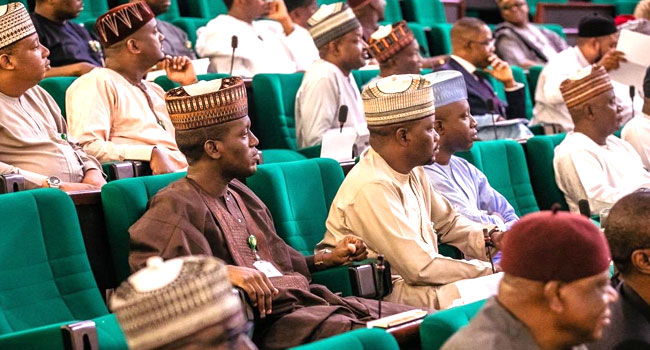CHANNELS TV
The House of Representatives has called for the automation of the nation’s budget in order to improve the process.
They made the call at the resumed plenary of lawmakers on Tuesday at the lower chamber of the National Assembly in Abuja, after about eight weeks of recess. Following a motion raised on the floor of the House, the lawmakers resolved to urge the Federal Executive Council to automate the national budget formulation, execution and reporting process.

They also mandated the House Committees on Finance, Appropriations, and Justice, to convene a legislative summit with relevant stakeholders to improve the budget process. A member of the House from Bauchi State, Mr Mansur Soro, had raised the motion in which stressed the need to improve the process.
He noted that the annual budget plays a crucial role in economic management and development policies of any nation. Soro believes it is the main mechanism of fiscal policy and the tool through which government could stabilise and influence the economic direction of a country.
According to him, the standard global public sector budgetary practice requires the implementation of a defined budgetary framework synchronised with timelines, or a standardised budgetary calendar to reduce uncertainties and promote compliance and coordination.
The lawmaker decried the situation where Nigeria’s budget process perennially experiences delays despite the efforts of all relevant entities involved in the budgeting process.
He added that budget delay impacts negatively on economic growth, as a 2018 study shows that 100 days delay in its implementation tends to depress the economy by at least 2.5 per cent.
Soro was also worried that the nation’s experience of prolonged budget process has imposed substantial economic costs on the public and private sectors of the economy.
He was concerned that such a delay has led to poor budget implementation, adding that it has a direct correlation to poor service delivery in the public service.
The delay, according to the lawmaker, introduces opacity into the budget process, leading to the induced diversion of public funds and resources, as well as corruption which has become the scourge of society.
He said the foreign and domestic private sector investment was adversely affected due to uncertainty in the strategic direction of the government.
No comments:
Post a Comment